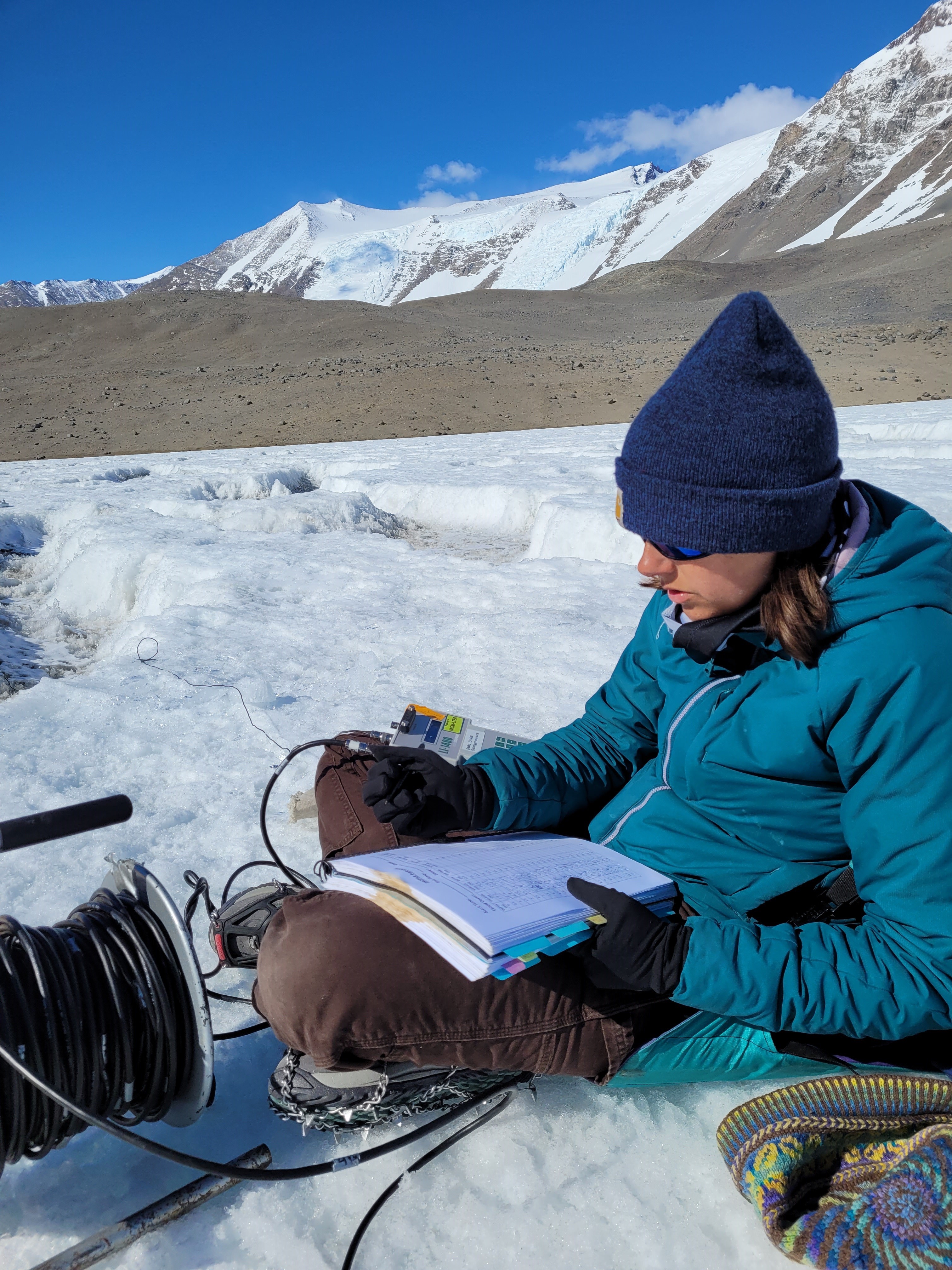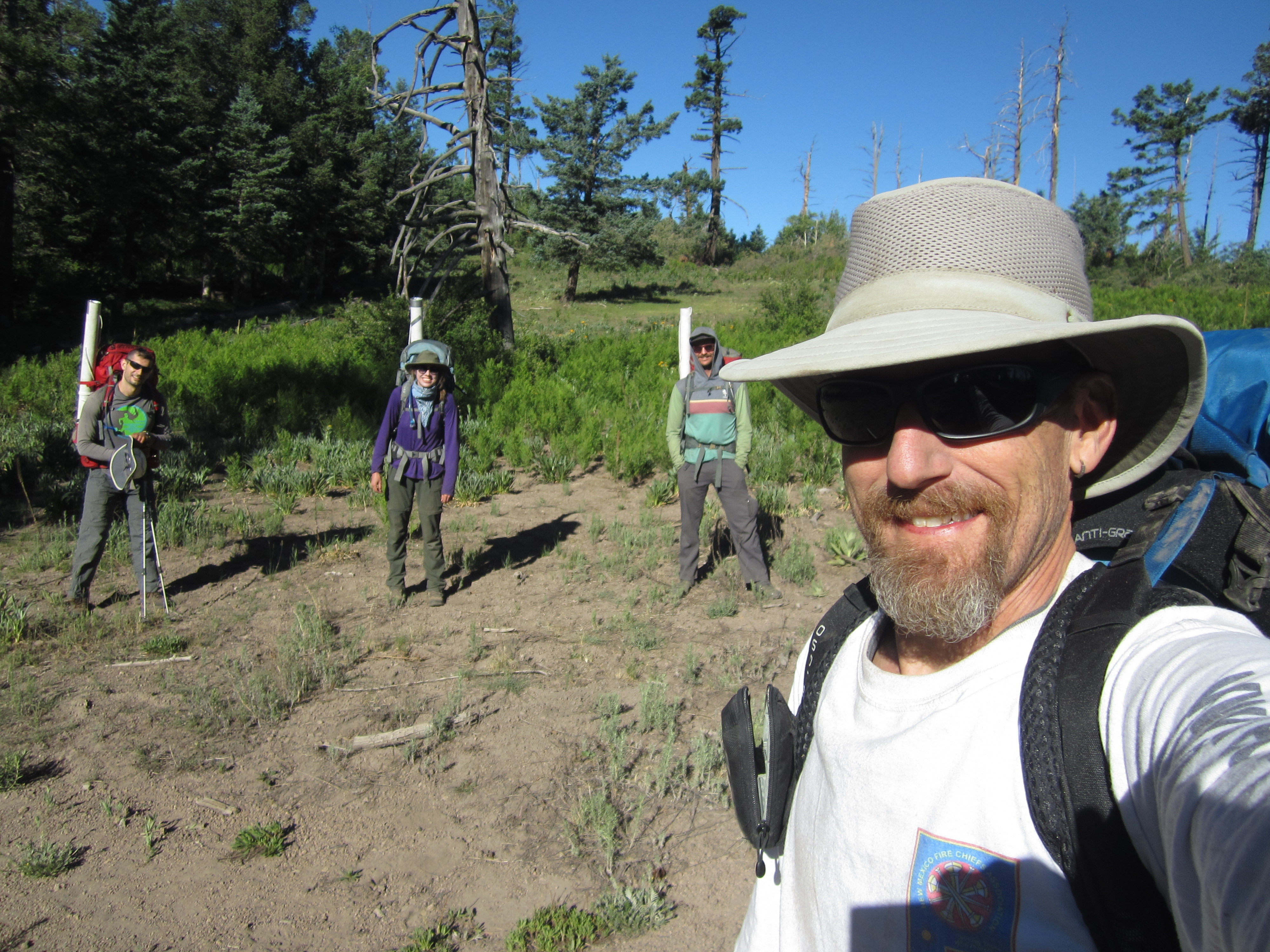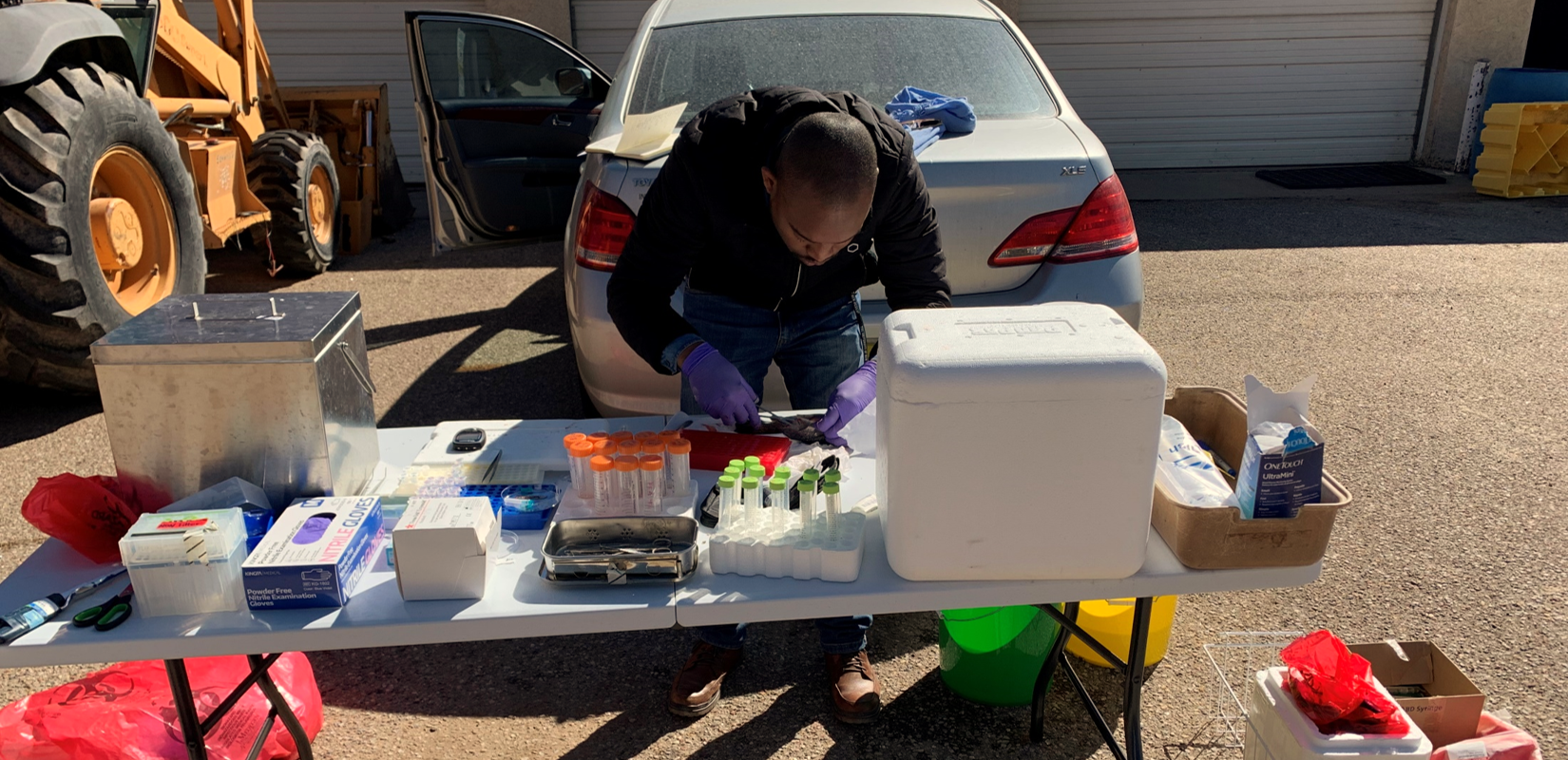Departmental Research
The research being performed within the Biology Department spans the breadth of biological sciences, from DNA to global ecosystems. To support this research, the department generates $9-13 million in federal, state, and private research funding each year. This supports a large research and training enterprise that is a significant contributor to the economy and workforce of our state. Last year alone, Biology faculty, research faculty, and students published over 160 papers in peer-reviewed journals. Check out our UNM Biology publications list to get an idea of our collective contributions to a wide range of sub-fields of Biology.

UNM Biologists have a significant presence within our state and worldwide. Examples of local research include conservation of freshwater fish in New Mexico’s rivers and streams, the Long-Term Ecological Research on the Sevilleta National Wildlife Refuge, vegetation modeling of the southwest, and the natural history of local mammals. We also have a large global footprint with research projects on every continent, including research on soil microbial populations in Antarctica, mammals in Mongolia, high-altitude physiology of birds in the Andes of South America, control of parasitic infections in East Africa, and the immune systems of Australian mammals.

Housed within the Biology Department are several national and internationally recognized research programs. We are home to the Museum of Southwestern Biology that houses research collections of plants, vertebrate and invertebrate animals. We are affiliated with three National Science Foundation supported Long Term Ecological Research (LTER) programs. We are home of the Sevilleta LTER centered on the ecosystem transitions of the Sevilleta National Wildlife Refuge and one of the universities behind the McMurdo Dry Valleys LTER that coordinates research on the ecology of the dry valleys of Antarctica. Finally, the Environmental Data Initiative is a multi-institutional team that includes UNM that curates and archives data from 28 LTER sites around North America, Tahiti, and Antarctica. UNM Biology is also the home department for the Center for Evolutionary and Theoretical Immunology (CETI), a center established with funding from the National Institutes of Health Centers of Biomedical Research Excellence program. CETI involves and encourages collaboration between investigators in the UNM Departments of Biology and Computer Science and the Los Alamos National Laboratory. Finally we are one of the key departments for the Center for Stable Isotopes, a multi-departmental center for the application and development of stable isotope techniques as a powerful research tool.

None of these research programs would be as successful if not for the involvement of UNM students. Each year, more than 200 undergraduate scholars working directly with faculty and graduate students, and staff are engaged in state-of-the-art research projects. Biology is home to two National Institutes of Health funded student-training programs, the Undergraduate Research Training Initiative For Student Enhancement (U-RISE), and Post-baccalaureate Research and Education Program (PREP) and a key part of a new NSF-funded graduate Museum Research Traineeship.
